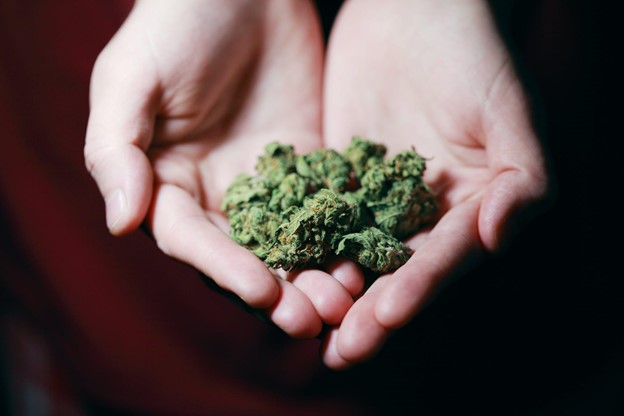Around the entire world, the future of cannabis is in constant flux. With the increasing popularity and scientific evidence supporting its benefits, there is a wave of legalization taking over the globe.
While there is immense progress in the legalization in some parts of the world, others take a middle ground for decriminalization, and still, others adhere to the illegal status.
In many countries, the laws are entirely incongruent. Rules and regulations surrounding cannabis vary wildly across countries, making navigating through the jurisdictions a tricky task.
Which major cannabis laws must you know about?
Cannabis has been a part of the grey area for a long time. It often leads to confusion around the legality of the herb and regulations surrounding its use.
When you decide to start using cannabis, be it for medicinal reasons or recreational, it is imperative to stay up-to-date with the herb laws.
Before you begin with cannabis consumption, here are a few essential laws that you must be well aware of:
1. Canada
Canada is a pioneer in the legalization of the sale and consumption of cannabis for recreational reasons.
The country introduced the Cannabis Act in October 2017 to allow people who are older than 18 to purchase and consume cannabis legally. It is a strict framework that controls cannabis to ensure that the youth is prevented from accessing cannabis and displacing the illegal cannabis market in the country.
According to the law, adults who are either 18 or 19 years old (depending on the province) can:
- Possess 30 grams or less of dried cannabis or its equivalent in liquid form in public
- Share 30 grams or less of dried cannabis or equivalent with adults
- Buy the herb from a territorial or provincial retailer
- Grow four cannabis plants or less per residence for personal use
The law strictly prohibits the sale of cannabis or related products to youth and packaging or promoting them in any way that appeals to them. Any illegal activity can subject you to a criminal penalty ranging from a ticket to 14 years imprisonment.
2. The USA

When it comes to the US, cannabis falls into the Schedule I drug and is considered an illegal drug at the federal level. However, many states such as Colorado, Washington, and California have now legalized recreational marijuana in recent years—adding to a total of 18 states that have now legalized recreational use.
Currently, 36 states have also legalized medical marijuana, with some overlap occurring between those states that have legalized recreational marijuana. Suppose you find yourself residing in a state that has only legalized medicinal marijuana. In that case, you will need to obtain a medical marijuana card to purchase products that contain trace amounts of THC more significant than 0.3 percent.
However, if you reside in a state where both recreational and medical marijuana is legal such as New York, it is still recommended you obtain a medical marijuana card from that state, as it can serve as further protection for you from the law, more excellent selection of cannabis products and lower prices.
The United States Government has also passed the Hemp Farm Bill in the year 2018, which regulated the use of hemp-derived products. It allowed the sale and consumption of CBD products from hemp, which contains 0.3 percent THC or less in the USA. The government also expressed support to enable states to regulate cannabis use independently.
Given the legalization, the American cannabis market can amount to $25 billion by the year 2025. Even more liberated cannabis law in the US can open the gateways for other countries that may be moved to the same following the steps of this country that is no less than a trendsetter when it comes to introducing new horizons to the world.
In June 2018, the government unveiled the Marijuana Freedom and Opportunity Act to remove the herb from controlled substances and decriminalize it. Today, many stores and online shops are using this opportunity to sell innovative products made with CBD
3. Europe
Europe is following the footsteps of America and jumping on the bandwagon of decriminalizing cannabis. A majority of European countries have now legalized the medical use of cannabis over the past few years, but the access remains inconsistent.
The cannabis laws across the continent have been transforming significantly, even decriminalizing the use and possession of a small amount of the herb. The European Union or EU has given the authority to countries to make their own rules and regulations about the use of cannabis.
Portugal has decriminalized all drugs, while countries like Spain, Austria, and Switzerland have also given cannabis legal status. When it comes to Belgium, the country has also decriminalized possession of the herb and the private cultivation of only one female plant with the same leniency.
In the Netherlands, cannabis is still illegal except for therapeutic use, but you can openly consume it in coffee shops and carry 5 grams if you are 18 years or older.
Such coffee shops are highly popular and people love spending time in these places as they serve as great places to relax and chill out with friends. Travelers too love to visit these shops as they are one of the main attractions for them, especially for people from those countries where this substance is not available.
4. Asia
When it comes to Asia, cannabis still mostly holds the illegal status. The plant is illegal in India, but due to its close association with spirituality and ancient herbal medicine, cannabis is tolerated in a few provinces.
You can get a cannabis-infused beverage called bhang in holy cities, among other edibles, from government-authorized stores.
Cannabis is a native plant of India, so it goes mostly unnoticed in mountains and forests. Some of the cultures in this country also involve the use of marijuana edibles in holy festivals.
In Iran and Pakistan, the herb is not legal, but cannabis use is still widespread. South Korea is among the very few liberal countries in Asia to allow the medicinal use of cannabis.
For now, you can only get cannabis-based drugs like Epidiolex and Sativex. Besides that, therapeutic use is legal in Sri Lanka, along with decriminalized recreational use.
5. Africa
In Africa’s case, cannabis is illegal across the board, and they are unfriendly to possession of the herb. Despite that, the federal law can go unnoticed and unenforced in many countries like Egypt, a part of everyday culture.
While cannabis is illegal in Zambia, it ironically has the third-largest population of cannabis smokers. Even in Ethiopia, Rastafari Movement’s birthplace, the herb is unlawful, and its possession can lead to six months of imprisonment.
6. Australia
In 2016, Australia legalized the cultivation of cannabis by approved producers. Although, the producers who are applying for it must meet rigorous requirements. The individual states have the authority to make the list of acceptable conditions of treatment.
With time, cannabis products have started flourishing in the Australian markets. People using CBD is not a vice here.
Final Thoughts
Many countries still regard cannabis as an illegal drug owing to the psychotropic effects of the herb.
On the other hand, the therapeutic properties of cannabis are inspiring a few nations worldwide to give it legal status. It has not only helped them control the use of the herb but also monetize it.
If you want to use cannabis, it is essential to become aware of the laws that regulate it to ensure you don’t violate them and get caught up in any illegal activity.

The Ideas Plus Business Editorial team is responsible for this post. For collaborations and partnership requests, kindly send an email to the Editorial Team at ideasplusbusiness[at]gmail[dot]com for the terms and conditions. You can also follow IdeasPlusBusiness.com on Twitter here and like our page on Facebook here.


